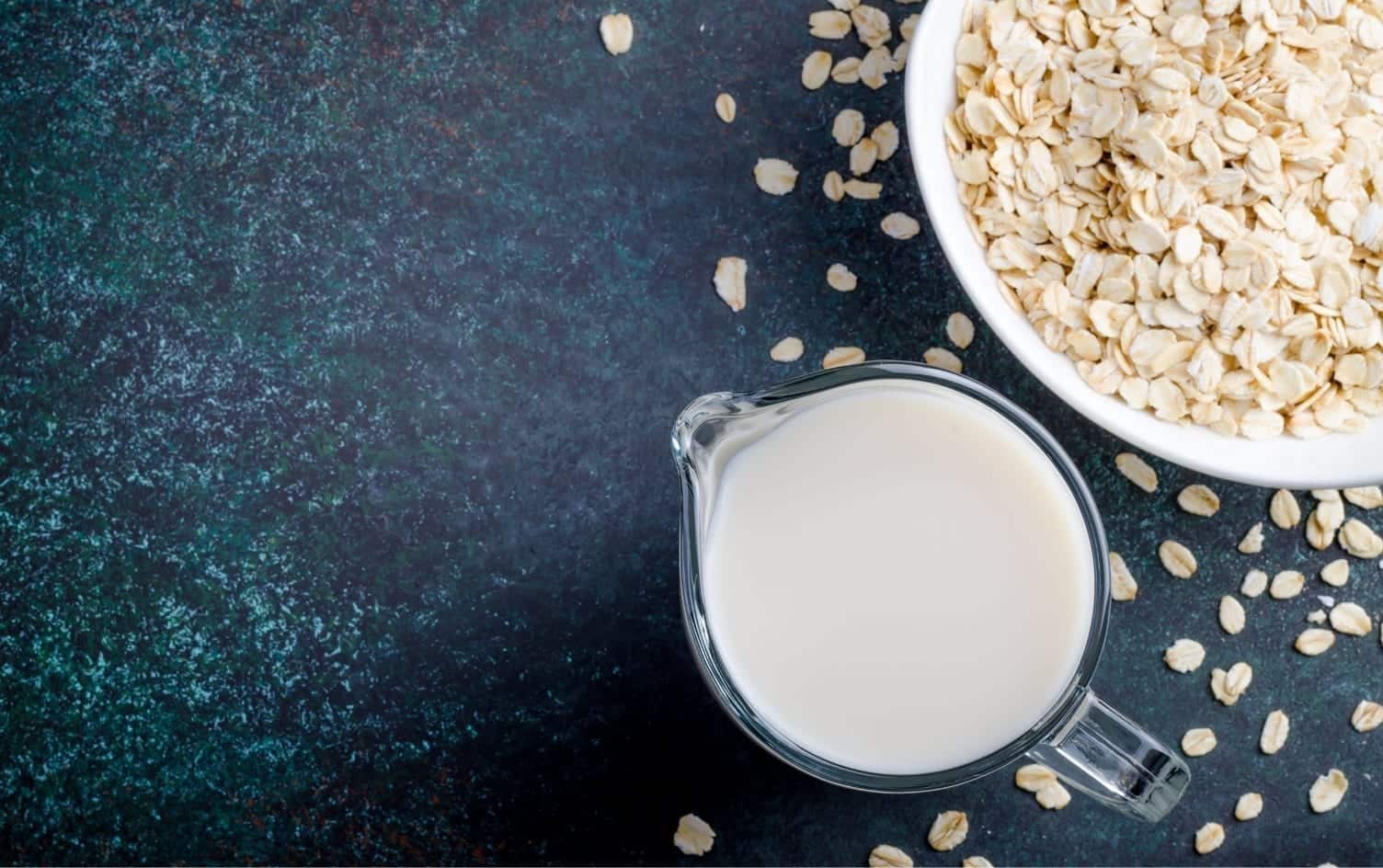You’ve probably noticed oat milk is popping up everywhere from grocery stores to neighborhood coffee shops. While other plant-based milk varieties like soy and almond are still holding strong, oat milk seems to be rising to the top of the crop at record speed.
“As more people look for dairy alternatives, more varieties have entered the market, but many people, including myself, believe oat milk is by far the creamiest and best-tasting option,” says Sheri Kasper, RD, co-founder of FRESH Communications.
Part of the hype may also be due to the fact oat milk is particularly environmentally friendly. “Oats release less carbon than other plants and the manufacturing process also uses less water,” explains Tracy Lockwood Beckerman, RD. “Almonds require about six times as much water to grow compared to oats. Growing soybeans for soy milk can damage the ecosystem as well.” Some companies, like Oatly, even take it a step further by using their production waste to make fertilizer and animal feed.
While taste and a lower carbon footprint are a couple of the benefits of choosing oat milk, here’s a look at the nutrition and how to determine if it’s right for you:
OAT MILK NUTRITION
Compared to most other plant-based milk options, oat milk is slightly higher in protein and much higher in carbohydrates. “Oat milk has approximately 130 calories per cup, of that 2.5 grams is fat, 4 grams is protein and 24 grams is carbohydrates,” says Samantha Scruggs, RD. For comparison, unsweetened almond milk is approximately 30 calories per cup, with 3 grams of fat, 1.5 grams protein and 1.5 grams of carbohydrates.
When compared with traditional cow’s milk, oat milk tends to have fewer calories, fat and protein, but more carbohydrates. “Pay attention to the calories and sugar in the pre-packaged versions, as oat milk tends to be high in both,” says Beckerman. “However, oat milk does contain fiber, which isn’t found in cow’s milk.” Since both options have certain benefits, each could be included as part of a healthy, well-balanced diet, notes Beckerman.
IS OAT MILK RIGHT FOR YOU?
Nutrition pros agree cow’s milk is probably your best bet if you’re looking for the optimal protein-to-carbohydrate ratio. However, if you’d like to stick with a dairy alternative here’s what to keep in mind when choosing between oat milk and other plant-based options:
1. CONSIDER YOUR PREFERENCE
Whether or not you like the taste of oat milk is probably the most important factor here. “All alternatives have a very different taste and texture, so choose one that is enjoyable for you,” says Beckerman.
2. TAKE ALLERGIES AND NOT INTOLERANCES INTO ACCOUNT
Those who are intolerant of or allergic to dairy will be set with oat milk, but “if you have celiac disease or a gluten sensitivity, be careful that any oat milk or (other substitute) is made with gluten-free oats and ingredients,” advises Beckerman.
3. DETERMINE WHETHER IT FITS WITH YOUR GOALS
“When it comes to deciding whether or not oat milk is a good choice, I would look at what your overall nutrition goals are and whether or not the macronutrients fit into your plan,” Scruggs says. “Since it’s a higher carbohydrate option, it would not fit well for someone on a lower carbohydrate diet,” she points out. On the other hand, it would be a good post-workout option for someone concerned with athletic performance, especially mixed with some protein powder.
4. TAKE THE USE INTO ACCOUNT
Choosing oat milk may make more sense in certain situations over others. For example, oat milk
tends to foam well and taste good in coffee drinks, but you might not notice the texture or taste as much in a smoothie with protein powder and fruit. In the case of the smoothie, it may make more sense to choose a lower-calorie milk alternative. If you’re baking and need a milk replacement, choose the one that is closest to regular milk, recommends Beckerman, which could be oat milk.




